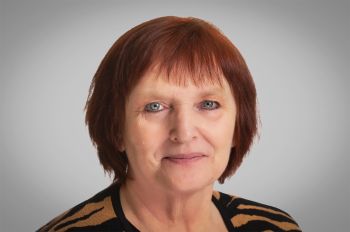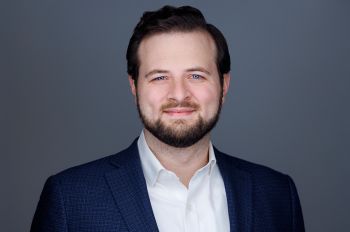IIT Chicago-Kent’s Institute on the Supreme Court of the United States and Oyez Project Release Materials on Upcoming Church-State Case
Multimedia guide will aid public understanding of the November 6 oral arguments
IIT Chicago-Kent's Institute on the Supreme Court of the United States (ISCOTUS) and its Oyez® Project have produced materials related to Town of Greece v. Galloway to coincide with the U.S. Supreme Court's November 6 hearing of oral arguments in the case. The case is a First Amendment case that looks at Establishment Clause issues related to legislative prayer—in this case, before city council meetings.
"The highlight of our materials is a series of videos geared to a general audience that explain the issues and provide context," said IIT Chicago-Kent professor and ISCOTUS director Carolyn Shapiro. "We have worked in tandem with our Oyez Project to generate accessible content for a wide audience."
Professor Shapiro interviews IIT Chicago-Kent Distinguished Professor Sheldon H. Nahmod in videos that provide background information, pose pertinent questions, and explain the issues the justices will consider. These include a historical overview of the separation of church and state, examination of the specific issues in Town of Greece v. Galloway, and some of the possible outcomes of the case. The videos can be viewed on the web at www.oyez.org/town-of-greece.
In addition to the videos, the materials include a time line that provides a brief history of religion and government in America from 1620 to the current case. "What's going on in the town of Greece, New York" is a special section that looks at the history and issues in the Supreme Court case and provides a political, social and economic look at the town that sparked the controversy. Coverage of the case in the Greece Post provides local viewpoints.
The guide also presents the advocates who will argue the case and links to briefs filed. A look at earlier Establishment Clause cases—including Marsh v. Chambers, a 1983 case in which the justices last considered legislative prayer issues—provides context.
"Our ‘deep dive' presentation also includes the text of the First Amendment's Establishment Clause, and a comprehensive time line with a brief history of religion and government that begins with the landing of the Pilgrims at Plymouth Rock in 1620 and ends with the current case before the justices," said Jerry Goldman, IIT Chicago-Kent research professor and director of the Oyez Project.
"When the court releases audio for the November 6 arguments, we will provide synchronized audio and transcripts," said Goldman.
ISCOTUSnow, a joint project of Oyez and ISCOTUS, is a free app for iPhone and iPad that provides video commentary on current U.S. Supreme Court cases, as well as access to Oyez's collection of oral arguments, opinions, and case summaries for more recent cases. ISCOTUSnow has been updated for iOS7 and is available at the App Store. The same video and commentaries are also available on ISCOTUS's special website: now.iscotus.org.
Established in 2011, the Institute on the Supreme Court of the United States combines the law school's core strengths: cutting-edge legal scholarship and technological innovation. The Oyez Project leverages information technology to make materials related to the U.S. Supreme Court instantly accessible around the world. The website, www.oyez.org, provides immediate access to nearly 10,000 hours of courtroom audio and has added merits briefs and amici briefs to its already comprehensive database.
Founded in 1888, IIT Chicago-Kent is the law school of Illinois Institute of Technology, a private, Ph.D.-granting institution with programs in engineering, psychology, architecture, business, design and law.



